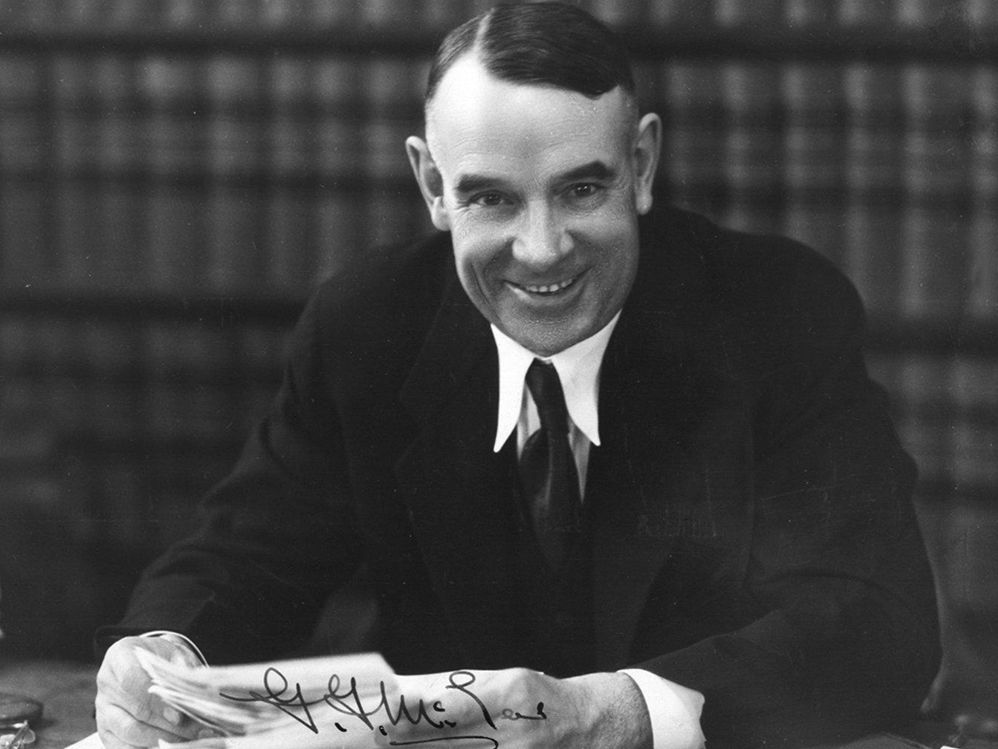
At about 10:15 p.m. on Aug. 10, 1947 Vancouver Mayor Gerry McGeer finished up some work in his study and laid down on a couch.
At 10 a.m. the following morning, his driver came to pick up McGeer to go to city hall, but he was dead.
McGeer had had a fatal heart attack in his sleep. He was 59.
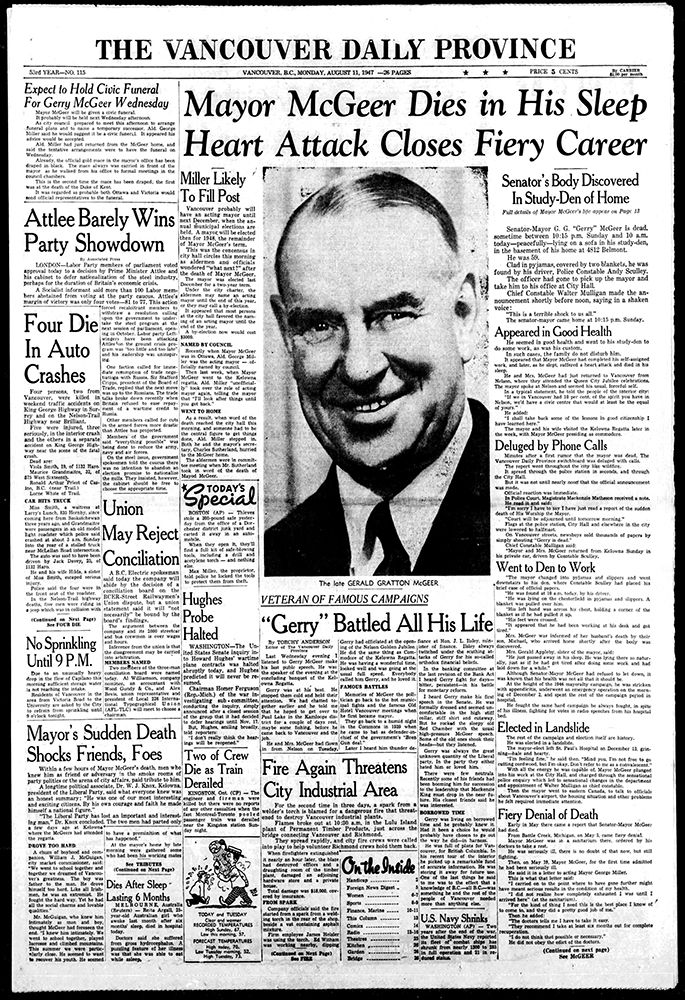
McGeer had previously had some health problems — he was bedridden with appendicitis and peritonitis (inflammation of the belly) during the 1946 campaign for mayor.
“He underwent an emergency operation Dec. 2 and spent the rest of the campaign period in hospital,” the Province noted on Aug. 11.
“He fought the same hard campaign he always fought, in spite of his illness, fighting for votes in radio speeches from his hospital bed.”
He won in a landslide. The city was shocked at his sudden death eight months later — there had been speculation he was going to make a run for prime minister if Mackenzie King stepped down.
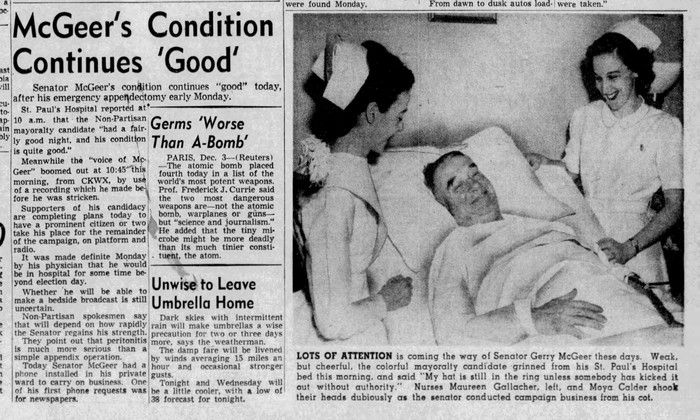
Gerald Gratton McGeer was born in Winnipeg on Jan. 6, 1888, one of 13 children. The family moved to Vancouver two years later, where his Irish father Jim McGeer became well-known for his eloquence and political bent. He passed both traits on to his son.
Gerry McGeer was an impatient youth: the Province said he quit high school at 14 because he thought the education system “medieval.” So his father got him as job as an iron moulder.
“He was a cocky little squirt, but the hardest working little guy you ever saw,” one of his co-workers said years later.
“The description was prophetic of McGeer the politician and reformer,” said the Province. “Bellicose and irrepressible, fond of his own eloquence, at times showy and bombastic, but with a fact-filled memory and a cool, calculating brain underlying all his fireworks.”
In his political career he was a fierce opponent of the left. But the Province said in his iron moulder days he became a union official, and “took a leading role in organizing several Vancouver strikes.”
He attended Dalhousie Law School in Halifax and was admitted to the B.C. bar in 1915. A year later he successfully ran for the B.C. legislature in Richmond as a Liberal.
After a stint in the army in the First World War, he ran for the federal Liberals in Vancouver Centre in 1920, but lost. He then thrived as a lawyer, being named a King’s Counsel in 1921.
But politics was his true calling. He became a Liberal MLA again in 1933 and in 1934 entered the civic arena, winning a landslide victory over Vancouver’s longest-serving mayor L.D. Taylor.
People had been arguing over whether to build a new city hall for decades but McGeer finally got it done, opening the city’s current art deco city hall in 1935. But his term as mayor was stormy: he read the riot act at Victory Square after unemployed men occupied the Hudson’s Bay store on April 23, 1935.
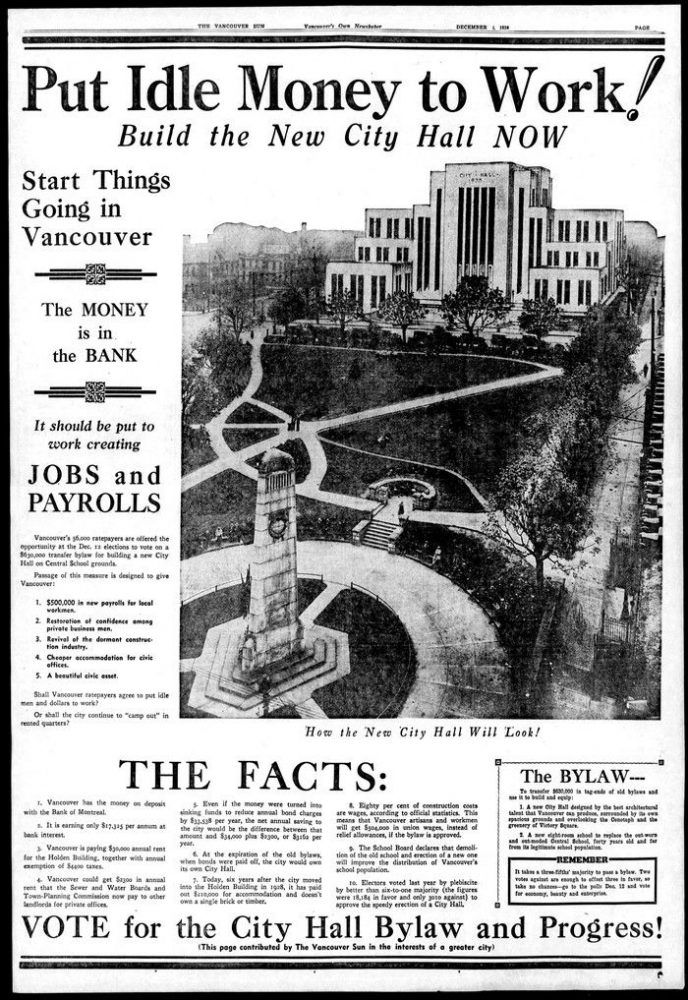
He then moved the proposed city hall out of downtown to 12th and Cambie, which was heavily criticized.
He was elected as a reformer, and in his first week in office fired the police chief and two magistrates. He declared war on vice and had the cops confiscate 1,000 slot machines.
He was so ubiquitous in Vancouver, newspaper headlines often referred to him as simply “Gerry.”
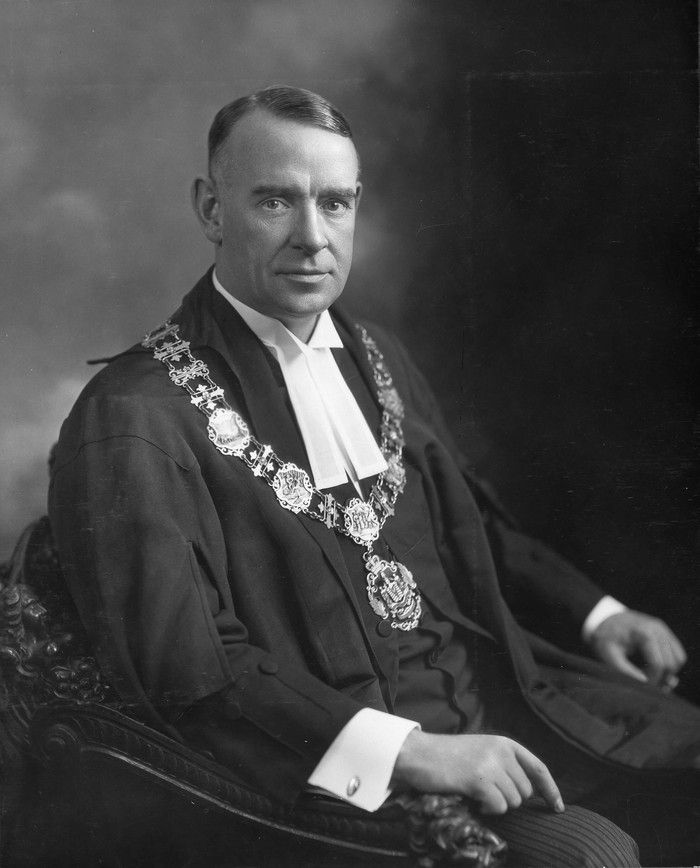
He left both civic and provincial politics after he won Vancouver Burrard in the federal election in 1935. But he became obsessed with currency reform and what the Sun called “monetary theories of his own devising,” and was never named to a federal cabinet.
Still he was well-known across Canada because of his speeches. A wag once said McGeer suffered from “inflammation of the vowels.”
“Ebullient, controversial, hard-hitting, voluble, and at times flamboyant, he never failed to capture the imagination of a public, which time after time gave him resounding, record-smashing majorities at the polls,” said the Sun after his death.
He was re-elected as MP in 1940 and was named to the Senate in 1945. But he called it “a mausoleum” and successfully ran for Vancouver mayor again in 1946.
His nephew Pat McGeer kept the family name alive in the provincial legislature as a Liberal and Social Credit MLA and cabinet minister from 1962 to 1996.
jmackie@postmedia.com